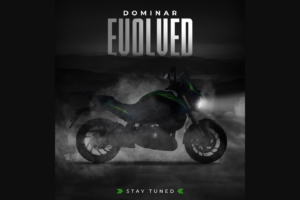Whenever I would ask to stay out late and spend time with my friends, my dad would always tell me that nothing good ever happened after 10:00 PM, thus setting my curfew. My teenage self was convinced that I was missing out on everything life had to offer, so naturally, once I was a little older and had started working, I rebelled by staying out late into the night. There’s a certain magic to cruising down an empty highway at night. The stresses of the day seem to melt away, replaced by a deep sense of focus. The rhythmic hum of the engine and the hypnotic glow of city lights lull you into a state of almost meditative calm. Add some good music into the equation and you have a cathartic experience like no other.
I used to be a bonafide night-owl, usually at the expense of getting to work on time in the morning, but I have changed my ways and manage to get to bed at a decent hour these days. Even still, I manage to sneak in a few late-night drives, every month, just to decompress. All this might be coming to an end very soon, though. I’ve come to realize that the modern driving experience comes with a hidden cost. Today’s cars are loaded with eSIMs and a whole lot of connected technology, silently collecting a treasure trove of data about your habits. From how fast you accelerate to how often you brake harshly, every action is meticulously recorded. When I bought my last car, a Chevrolet Bolt EV, before I could drive it out of the dealership, I was asked to sign a large stack of papers, akin to an end user licensing agreement that you click through almost instinctively when you install new software. Well, it turns out, hidden among those papers was one which allowed the automaker to not only collect data about my driving habits, but to conveniently pass it along to my insurance company.
During the first few weeks of owning an electric car, I was so enamoured by the Bolt’s instant torque that I would stomp on the accelerator pedal every chance I got. Peeling away from stop lights and merging with highway traffic with such ease that I turned into an EV evangelist for the better part of a year. I even offered to take people on joyrides just to show off my new purchase. As it turns out, as much as I was advocating for it, my car was secretly betraying me with every byte of data it sent back to the mothership. My car insurance rates also shot up significantly after I got the Bolt, but I just chalked that up to inflation, as you do with everything these days. After I found out about this clandestine data collection effort, I requested a copy of the data to see exactly how much data it had on me, and I got a 300 plus page tome in return, consisting of every time I accelerated briskly, every time I braked harshly and, most importantly, every time I drove the car past 10 PM! I have since sold the Bolt, but this issue is not limited to Chevrolet. Many automakers are exploring similar data-driven insurance models. Tesla, for instance, offers its own insurance that uses real-time driving data to adjust rates, and similarly penalizes drivers for staying out late among other things.
I’m a huge fan of the convenience offered by connected cars, and am usually the first to enable such features, but I think we should be given the option to opt-out of data collection and have more control over the information our cars transmit.
















